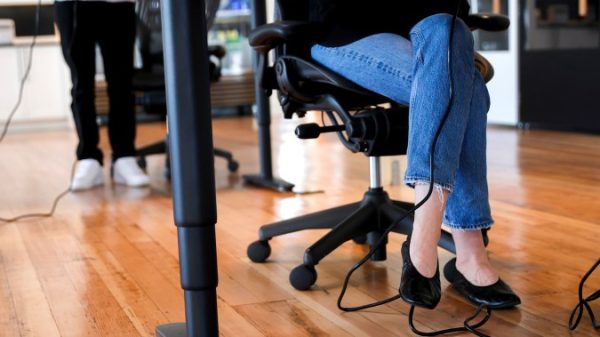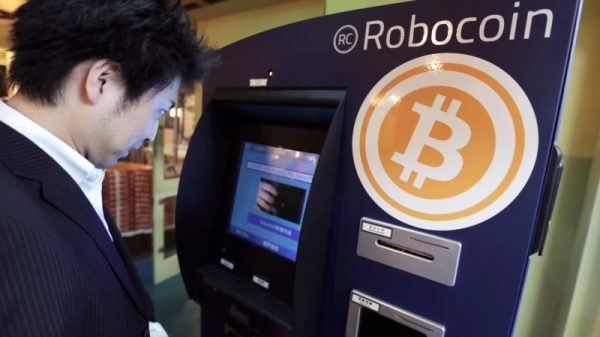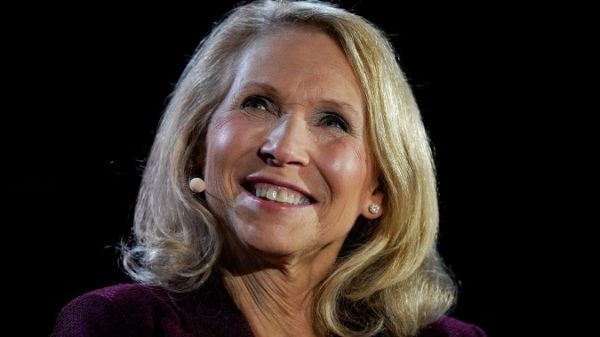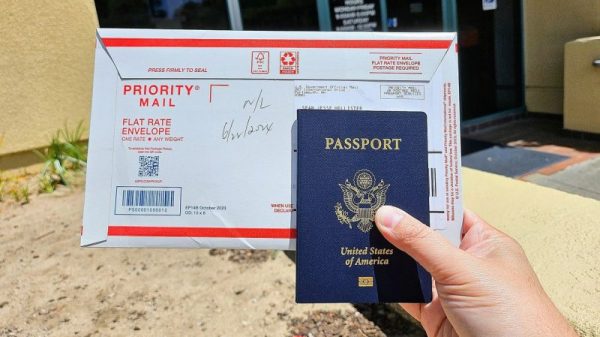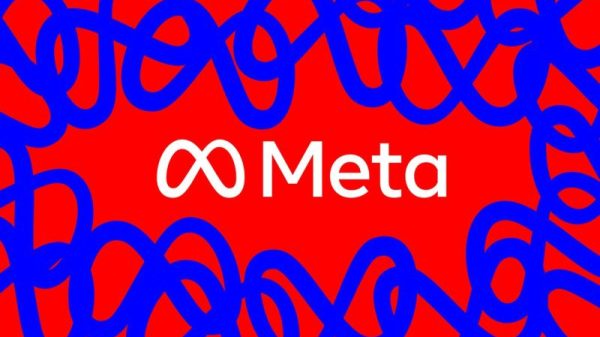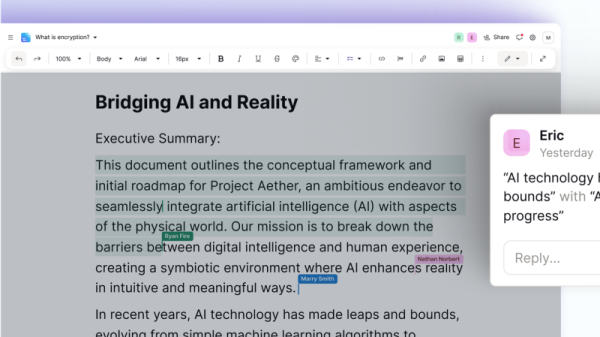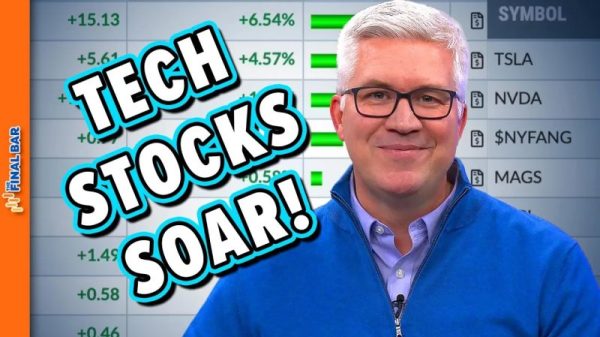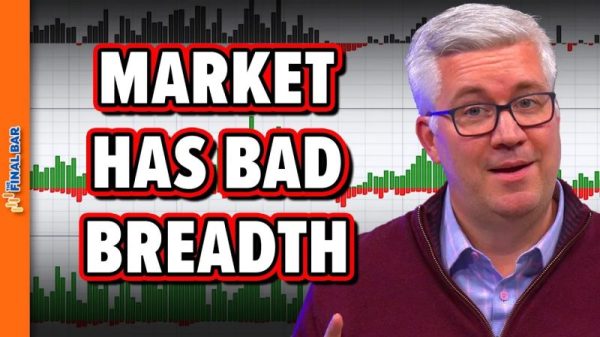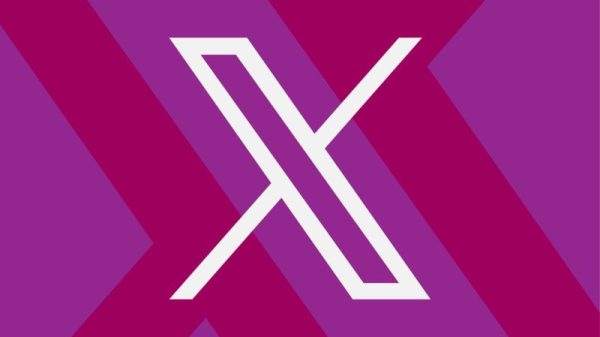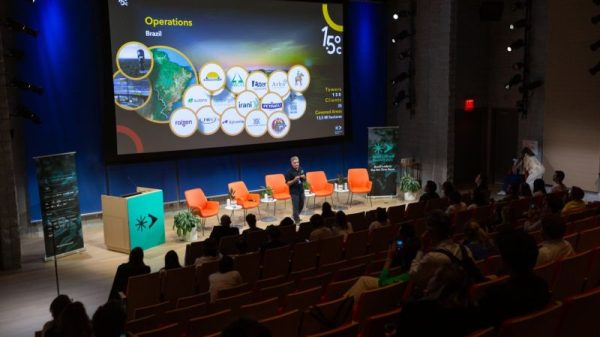Former president Donald Trump’s Georgia indictment occupies an unusual space among his four criminal cases.
For a start, it might be the most compelling case, by virtue of how many associates — 18 — were also charged in the alleged conspiracy to overturn the 2020 election. There’s also the possibility that the proceedings could be televised. Finally, there is substantially more reason to believe that Trump won’t stand trial before the 2024 election in this case than there is in the three other cases.
Nonetheless, we are about to learn some significant things — and soon.
Already three key defendants have forced the issue in ways that could draw back the curtain on the strength of the case against Trump.
Former Trump White House chief of staff Mark Meadows’s request to move his case to federal court will be the subject of an evidentiary hearing Monday. It’s possible that Meadows might need to testify for his request to succeed, and we learned Thursday that Fulton County District Attorney Fani T. Willis has subpoenaed two central witnesses to participate: Georgia Secretary of State Brad Raffensperger (R) and his chief investigator, Frances Watson. (Politico’s Kyle Cheney said this makes Monday’s hearing something of a “mini trial.”)
Also Thursday, a judge set an Oct. 23 trial date for one defendant, Kenneth Chesebro. Chesebro has requested a speedy trial, which he is entitled to under Georgia law. Former Trump lawyer Sidney Powell has also requested a speedy trial, though her trial date hasn’t been set. While their prosecutions might be separated from the defendants who prefer to delay their proceedings (including Trump), an early trial for one or more defendants could get at central facets of the alleged conspiracy.
As for how significant Monday could be?
The big development would be Meadows taking the stand, which some legal experts doubt he’ll do. (Because of the risks involved, including cross-examination, defendants are often advised against testifying.) Regardless, the hearing could provide our first view of how some other key witnesses testify. And it could set the tone when it comes to whether other defendants have their cases “removed” from Fulton County.
“If Meadows actually went to trial, he probably wouldn’t testify,” said Clark Cunningham, a law professor at Georgia State University. “So the decision on removal is going to be important for how things go. It might be almost more of a trial than we get on Oct. 23.”
As for that Oct. 23 trial date, things could still change. But if Chesebro and Powell continue to insist on a speedy trial — Georgia law allows defendants to demand a case be tried within two terms of the court, a period which would conclude around the end of October — the trial could begin in a matter of weeks.
Some Georgia legal experts say the stakes in a Chesebro trial would be high, by virtue of Chesebro’s centrality to both the Georgia case and special counsel Jack Smith’s federal indictment of Trump. (Chesebro isn’t charged in Smith’s case, but he is one of six unindicted co-conspirators.)
Chesebro is cast in both indictments as an architect of the effort to use alternate, or “fake,” Trump electors to help overturn the election on Jan. 6, 2021.
Smith cites a Dec. 6, 2020, Chesebro memo as a “sharp departure” from the idea that fake electors were being used for more innocent purposes. Smith indicates it’s at this point that the fake electors went from being a contingency plan in case states overturned their election results, as the Trump campaign claimed publicly, to being a fraudulent effort to create “a fake controversy that would derail the proper certification of Biden as president-elect” on Jan. 6, 2021.
Chesebro also features in some key episodes and interactions in both indictments:
The federal indictment cites an Arizona lawyer saying on Dec. 8, 2020 that Chesebro had told him the plan was to use Trump electors “that aren’t legal under federal law” … “so that members of Congress can fight about whether they should be counted on January 6.”It accuses Chesebro of telling the Arizona lawyer to produce a court filing to create the illusion of uncertainty over the Arizona outcome ahead of the Dec. 14, 2020 elector deadline.It describes Chesebro as sending draft elector certificates to fake electors in New Mexico “at a [Trump] Campaign staffer’s request.”The Georgia indictment describes Chesebro coordinating with Trump associates like Rudy Giuliani and key officials in other states in which fake electors were ultimately submitted. It says Chesebro emailed Giuliani on Dec. 13, 2020 with, in the indictment’s words, “multiple strategies for disrupting and delaying the joint session of Congress on January 6.” It quotes Chesebro saying his ideas were “preferable to allowing the Electoral Count Act to operate by its terms.”It cites Chesebro sending similar emails to Trump attorney John Eastman on Jan. 1, 2021, and Jan. 4, 2021.
(Both Giuliani and Eastman were also charged in Georgia, but were unindicted co-conspirators in the federal case.)
We don’t yet know if Powell will be tried at the same time, but she briefly served on Trump’s legal team after the 2020 election and was instrumental in pushing some of the most bizarre claims about voter fraud. She also filed dubious lawsuits used to sow doubt about the election results.
While an Oct. 23 trial could involve only Chesebro and possibly Powell, they are charged alongside 17 others (including Trump) with a racketeering conspiracy. The experts say that means the case would require delving into the much-broader alleged conspiracy, which features 161 alleged overt acts — 21 of which involve Chesebro and 13 of which involve Powell.
“My guess is, at a minimum, that we’re going to hear about the fake electors case in all seven states,” Cunningham said of a Chesebro trial. “And because he is charged with a RICO conspiracy, all of the overt acts are fair game.”
Anthony Michael Kreis, another law professor at Georgia State, noted that most of Chesebro’s alleged actions don’t involve Georgia specifically. He said that means Chesebro’s “main function” is to “tie Trump to the scheme at-large and possibly shed light on that.”
“That could unearth a lot of damaging evidence against Trump, potentially either through the trial process or if Chesebro cuts a deal,” Kreis said.
Early trials could also send signals to other defendants, potentially having an impact on their legal strategies and negotiations over potential deals.
Getting a plea deal or a guilty verdict before others go to trial would be momentous, said former federal prosecutor Harry Litman.
“We will learn a lot because it’s a RICO charge; it’s the main charge, and everybody shares it,” Litman says. “So to prove it against Chesebro means quite a bit.”
Chesebro’s lawyer has also implied that Chesebro might call into question a central Trump defense, which is that Trump was merely relying on advice of counsel.
“Whether the campaign relied upon that advice as Mr. Chesebro intended,” attorney Scott Grubman told Rolling Stone before the Georgia indictment came down, “will have to remain a question to be resolved in court.”
The experts we consulted say Chesebro’s and Powell’s cases will almost definitely go to trial this year unless they back away from their requests. But there are difficult issues involved, including whether other defendants can get their cases separated — “severed,” in legal parlance. Willis has proposed that everyone go to trial on Oct. 23. But Trump’s lawyers, who have pushed to delay other proceedings, have objected. And trying everyone that quickly could prove complicated.
But there are also related ways in which holding an early trial could benefit Trump and others, the experts said. They said it means Willis will need to have her ducks in a row quickly. And she could be essentially providing a preview of her case for the rest of the defendants, allowing them to tailor their defenses accordingly.
“It’s kind of bad for Willis,” Litman said, “though obviously if she gets a tub-thumping quick conviction, that strikes fear in the hearts of the others.”
Former president Donald Trump’s Georgia indictment occupies an unusual space among his four criminal cases.
For a start, it might be the most compelling case, by virtue of how many associates — 18 — were also charged in the alleged conspiracy to overturn the 2020 election. There’s also the possibility that the proceedings could be televised. Finally, there is substantially more reason to believe that Trump won’t stand trial before the 2024 election in this case than there is in the three other cases.
Nonetheless, we are about to learn some significant things — and soon.
Already three key defendants have forced the issue in ways that could draw back the curtain on the strength of the case against Trump.
Former Trump White House chief of staff Mark Meadows’s request to move his case to federal court will be the subject of an evidentiary hearing Monday. It’s possible that Meadows might need to testify for his request to succeed, and we learned Thursday that Fulton County District Attorney Fani T. Willis has subpoenaed two central witnesses to participate: Georgia Secretary of State Brad Raffensperger (R) and his chief investigator, Frances Watson. (Politico’s Kyle Cheney said this makes Monday’s hearing something of a “mini trial.”)
Also Thursday, a judge set an Oct. 23 trial date for one defendant, Kenneth Chesebro. Chesebro has requested a speedy trial, which he is entitled to under Georgia law. Former Trump lawyer Sidney Powell has also requested a speedy trial, though her trial date hasn’t been set. While their prosecutions might be separated from the defendants who prefer to delay their proceedings (including Trump), an early trial for one or more defendants could get at central facets of the alleged conspiracy.
As for how significant Monday could be?
The big development would be Meadows taking the stand, which some legal experts doubt he’ll do. (Because of the risks involved, including cross-examination, defendants are often advised against testifying.) Regardless, the hearing could provide our first view of how some other key witnesses testify. And it could set the tone when it comes to whether other defendants have their cases “removed” from Fulton County.
“If Meadows actually went to trial, he probably wouldn’t testify,” said Clark Cunningham, a law professor at Georgia State University. “So the decision on removal is going to be important for how things go. It might be almost more of a trial than we get on Oct. 23.”
As for that Oct. 23 trial date, things could still change. But if Chesebro and Powell continue to insist on a speedy trial — Georgia law allows defendants to demand a case be tried within two terms of the court, a period which would conclude around the end of October — the trial could begin in a matter of weeks.
Some Georgia legal experts say the stakes in a Chesebro trial would be high, by virtue of Chesebro’s centrality to both the Georgia case and special counsel Jack Smith’s federal indictment of Trump. (Chesebro isn’t charged in Smith’s case, but he is one of six unindicted co-conspirators.)
Chesebro is cast in both indictments as an architect of the effort to use alternate, or “fake,” Trump electors to help overturn the election on Jan. 6, 2021.
Smith cites a Dec. 6, 2020, Chesebro memo as a “sharp departure” from the idea that fake electors were being used for more innocent purposes. Smith indicates it’s at this point that the fake electors went from being a contingency plan in case states overturned their election results, as the Trump campaign claimed publicly, to being a fraudulent effort to create “a fake controversy that would derail the proper certification of Biden as president-elect” on Jan. 6, 2021.
Chesebro also features in some key episodes and interactions in both indictments:
The federal indictment cites an Arizona lawyer saying on Dec. 8, 2020 that Chesebro had told him the plan was to use Trump electors “that aren’t legal under federal law” … “so that members of Congress can fight about whether they should be counted on January 6.”It accuses Chesebro of telling the Arizona lawyer to produce a court filing to create the illusion of uncertainty over the Arizona outcome ahead of the Dec. 14, 2020 elector deadline.It describes Chesebro as sending draft elector certificates to fake electors in New Mexico “at a [Trump] Campaign staffer’s request.”The Georgia indictment describes Chesebro coordinating with Trump associates like Rudy Giuliani and key officials in other states in which fake electors were ultimately submitted. It says Chesebro emailed Giuliani on Dec. 13, 2020 with, in the indictment’s words, “multiple strategies for disrupting and delaying the joint session of Congress on January 6.” It quotes Chesebro saying his ideas were “preferable to allowing the Electoral Count Act to operate by its terms.”It cites Chesebro sending similar emails to Trump attorney John Eastman on Jan. 1, 2021, and Jan. 4, 2021.
(Both Giuliani and Eastman were also charged in Georgia, but were unindicted co-conspirators in the federal case.)
We don’t yet know if Powell will be tried at the same time, but she briefly served on Trump’s legal team after the 2020 election and was instrumental in pushing some of the most bizarre claims about voter fraud. She also filed dubious lawsuits used to sow doubt about the election results.
While an Oct. 23 trial could involve only Chesebro and possibly Powell, they are charged alongside 17 others (including Trump) with a racketeering conspiracy. The experts say that means the case would require delving into the much-broader alleged conspiracy, which features 161 alleged overt acts — 21 of which involve Chesebro and 13 of which involve Powell.
“My guess is, at a minimum, that we’re going to hear about the fake electors case in all seven states,” Cunningham said of a Chesebro trial. “And because he is charged with a RICO conspiracy, all of the overt acts are fair game.”
Anthony Michael Kreis, another law professor at Georgia State, noted that most of Chesebro’s alleged actions don’t involve Georgia specifically. He said that means Chesebro’s “main function” is to “tie Trump to the scheme at-large and possibly shed light on that.”
“That could unearth a lot of damaging evidence against Trump, potentially either through the trial process or if Chesebro cuts a deal,” Kreis said.
Early trials could also send signals to other defendants, potentially having an impact on their legal strategies and negotiations over potential deals.
Getting a plea deal or a guilty verdict before others go to trial would be momentous, said former federal prosecutor Harry Litman.
“We will learn a lot because it’s a RICO charge; it’s the main charge, and everybody shares it,” Litman says. “So to prove it against Chesebro means quite a bit.”
Chesebro’s lawyer has also implied that Chesebro might call into question a central Trump defense, which is that Trump was merely relying on advice of counsel.
“Whether the campaign relied upon that advice as Mr. Chesebro intended,” attorney Scott Grubman told Rolling Stone before the Georgia indictment came down, “will have to remain a question to be resolved in court.”
The experts we consulted say Chesebro’s and Powell’s cases will almost definitely go to trial this year unless they back away from their requests. But there are difficult issues involved, including whether other defendants can get their cases separated — “severed,” in legal parlance. Willis has proposed that everyone go to trial on Oct. 23. But Trump’s lawyers, who have pushed to delay other proceedings, have objected. And trying everyone that quickly could prove complicated.
But there are also related ways in which holding an early trial could benefit Trump and others, the experts said. They said it means Willis will need to have her ducks in a row quickly. And she could be essentially providing a preview of her case for the rest of the defendants, allowing them to tailor their defenses accordingly.
“It’s kind of bad for Willis,” Litman said, “though obviously if she gets a tub-thumping quick conviction, that strikes fear in the hearts of the others.”

